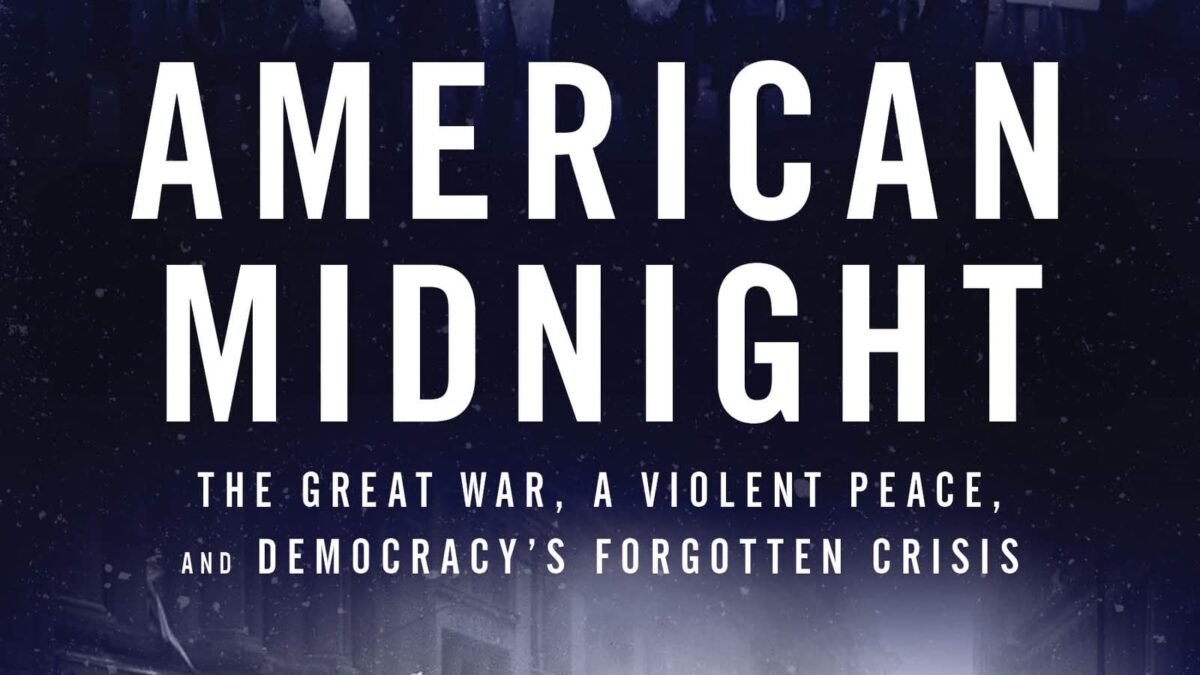
Book Review of American Midnight: The Great War, a Violent Peace, and …
American Midnight: A Dark Reflection on Democracy’s Fragility
When I first picked up American Midnight: The Great War, a Violent Peace, and Democracy’s Forgotten Crisis by Adam Hochschild, I was drawn in by its promise to uncover the lurking shadows of American history that seldom reach our textbooks. Hochschild’s name already held weight for me, echoing with the powerful truths presented in works like King Leopold’s Ghost. I approached this book with a mix of anticipation and apprehension, knowing that what lay beneath the surface of our historical narratives can often be as enlightening as it is disturbing.
Hochschild takes us back to the years between 1917 and 1921—a period that witnessed not just the trials of a world war, but a violent repression of civil liberties that would leave lasting scars. As I delved deeper, I was struck by the stark contrast between the lofty ideals of the Declaration of Independence and the grim reality that many faced during Woodrow Wilson’s presidency. The book unfolds as a gripping narrative of mass imprisonments, vicious intolerance, and suppression of dissent, revealing how a war meant to champion democracy abroad became a catalyst for its dismantling at home.
Hochschild’s research shines in the tragic stories he presents, from the imprisonment of labor leader Eugene V. Debs to the brutal treatment of conscientious objectors. My heart sank upon reading about the injustices meted out to those who simply voiced their opposition to the war. "Fear that dissenters might resist the draft…provided the excuse for a relentless erosion of civil liberties," Hochschild writes, and I found myself reflecting on the parallels in today’s political climate, where dissent is often stigmatized.
The pacing of the narrative is brisk yet deep, with Hochschild expertly weaving together historical accounts that feel immediate and relevant. His prose is both engaging and accessible, inviting readers into a complex history without overwhelming them. One mantra from the book that echoed in my mind was, “This is a story of how a war supposedly fought to make the world safe for democracy became an excuse for a war against democracy at home.” It’s a haunting reminder that our history is not just about celebrating victories, but also about reckoning with profound moral failures.
I found myself especially moved by his exploration of the anti-immigrant fervor and the rise of civilian vigilante groups during this period. The American Protective League, numbering 250,000, exemplified a chilling compulsion to surveil and purge perceived enemies—echoes of which reverberate into current discussions surrounding civil liberties today. In a line that struck me deeply, Hochschild notes, “It never seems to have occurred to Wilson that…the harsh crackdown on antiwar dissidents…had not nurtured a climate of enthusiasm for a peace-oriented, international idea.”
American Midnight is not merely a recounting of dark history; it’s a call to awaken and confront uncomfortable truths about our past and present. It’s a book that will resonate with history enthusiasts, social activists, and anyone who seeks a deeper understanding of the fragility of democracy. As I closed the pages, I felt a renewed commitment to engaging with these historical truths, reminding us that the path to liberty is fraught with peril and requires constant vigilance.
In essence, Hochschild’s narrative unfurls a compelling tapestry of America’s darker chapters—a vital reminder that our quest for democracy is ongoing and full of challenges. This book left a mark on me, echoing a question that lingers long after the last page is turned: how do we ensure that the sacrifices of the past serve not as a blueprint for oppression, but as a guide toward genuine freedom and democracy for all?
Discover more about American Midnight: The Great War, a Violent Peace, and … on GoodReads >>






